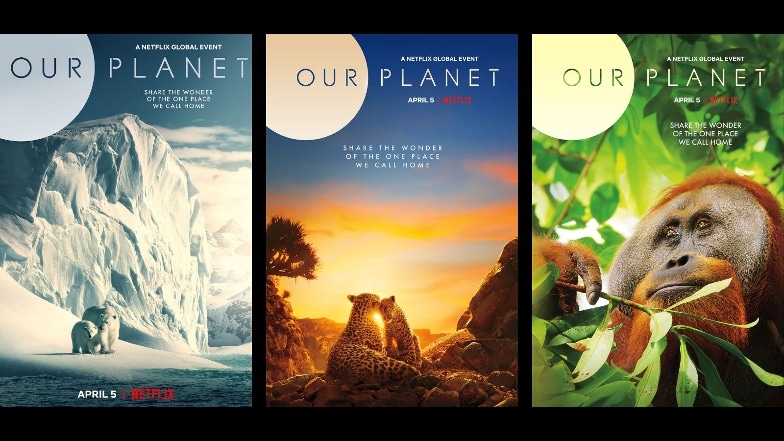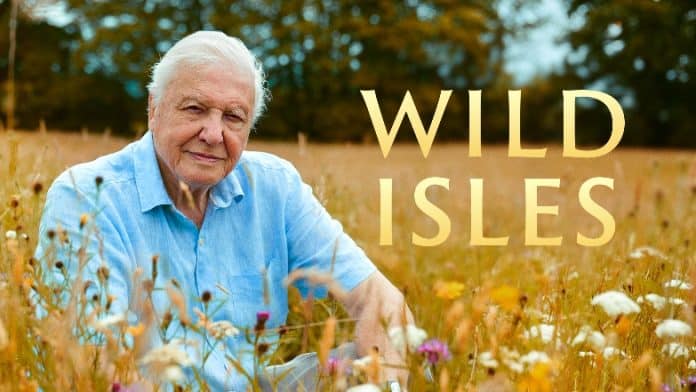Production company Silverback took home the fourth edition of the MIPTV SDG Award at a ceremony at the Palais des Festivals in Cannes on 18 April. The UK-based wildlife documentary specialist, which for over 10 years has brought the natural world to screens across the globe, was awarded the annual prize for its work towards the Sustainable Development Goals (SDGs).
The award recognises media companies for their contribution towards the SDGs and is the fruit of collaboration between the United Nations and MIPTV, part of RX France and a member of the SDG Media Compact.
Silverback Film’s shows include ‘David Attenborough, A life on our Planet’, ‘Our Planet’ and ‘Wild Isles’. The production company also launched Studio Silverback in 2020 to raise awareness of the climate emergency through film, and its documentaries include ‘The Earthshot Prize: Repairing Our Planet’, a series led by Prince William.
“At Silverback, our mission is to combine powerful storytelling with world-class cinematography to reveal the urgent truth of our changing planet to a global audience as well as the opportunity we have for a sustainable future. We see that to drive real change, we must tackle the communications challenge,” said Jonnie Hughes, Creative Director at Studio Silverback, who accepted the prize in Cannes.
Storytelling for sustainability

Silverback’s productions take viewers into the wilderness across the globe, from the ice caps and deep ocean to deserts and remote forests. Its show ‘Our Planet’, for example, explores the Earth’s rich natural wonders and iconic species, and reveals the key issues that urgently threaten their existence. More than 100 million households have watched the programme since its release in April 2019.
“The pace and scale at which we change and become more sustainable over the next few critical decades will be determined by the strength of public support across the globe. Public support is won, in part, by dominant narratives,” explained Jonnie Hughes in an interview with the United Nations Regional Information Centre (UNRIC). “As Sir David Attenborough has said, “if enough people can see the path, we may just head down it in time.”
In a video message to the ceremony in Cannes, UN Global Communications Chief Melissa Fleming congratulated Silverback and underlined the importance of the film and TV industry in communicating the SDGs.
“Storytelling matters more than ever. We at the United Nations use the power of storytelling to try to capture people’s imagination and speak to their hearts. I would like to congratulate Silverback Films and Studio Silverback for bringing inspiring content to a worldwide audience and helping us to better understand our planet and the challenges it faces,” she said.
UNRIC Deputy Director, Caroline Petit, who presented the award to Silverback, emphasised not only the media’s role in raising awareness of climate change, but also the need for change within the industry.
“You have the power to create change around the world. But first, you can create change within your industry. From producing content on climate action, to supporting ethical advertisers and adopting sustainable production practices, there is so much you can, and must, do,” she said, while also inviting film and TV companies to join the SDG Media Compact. The global alliance brings together 350 media and entertainment companies who are committed to leveraging their resources and talent to accelerate progress towards achieving the SDGs.
SDGs as a framework
The SDGs are a universal call to action to end poverty, protect the planet, and ensure that by 2030 all people enjoy peace and prosperity.
Silverback was recognised in particular for its work towards SDG 13 (Climate action), SDG 14 (Life below water) and SDG 15 (Life on land).
“Whenever we engage in a new project, we work through how we can bring the wider context of sustainability to the stories we are trying to tell. You can’t really tell relevant stories to audiences today without doing so. The SDGs are a really simple and comprehensive framework for this process,” noted Jonnie Hughes.
He believes Silverback’s work is associated with more than just the nature-based SDGs, “because the health of the natural world and the health and development of the human world are intrinsically linked.”
Front-row seat to the effects of climate change
Silverback’s programmes explore the natural wonders across all corners of the globe, and the teams behind its productions have witnessed first-hand the threats our planet is facing.
“Silverback teams have filmed in woodlands, busy with life, in Madagascar, to discover that they had been turned into fields before the episode that featured them was aired. We’ve filmed polar bears over decades in Svalbard, and each year, the waxing and waning of the sea ice the bears rely upon to hunt, is becoming substantially less reliable. We’ve found it harder and harder to find coral reefs that match the expectations that we all have – that super-rich, rainbow-coloured underwater city of eternal activity – they are shadows of their former selves now in many parts of the ocean,” detailed Jonnie Hughes.
“But, perhaps scariest of all – you don’t have to be a member of a wildlife film crew to see radical change anymore. Wildfires, fish population crashes, heatwaves, record floods, vanishing snowfields – these are part of our normal experience today.”
Indeed, the UN’s meteorological agency, WMO, has warned that extreme weather events are the new normal.
“There are lots of hazard lights flashing – I think 99% of us can see that now – and that’s actually what gives me hope,” concluded Jonnie Hughes. “We human beings are, above all, magnificent problem solvers. Once we understand that there is a problem, we are purpose built to come together and sort it out.”
Find out more:

